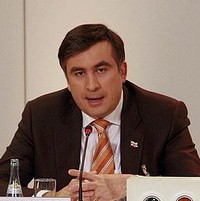Earlier this morning, Georgian President Mikhail Saakashvili conceded that his ruling United National Movement (UNM) party had lost the popular vote to the opposition Georgian Dream coalition in yesterday’s parliamentary elections. Having pledged to allow the opposition to the form the next government, Saakashvili will further secure his legacy by overseeing the first peaceful and legal transfer of power between opposing political forces in Georgia’s history.
This ballot therefore marks an important point in the country’s history, consolidating its democratic transition. Specifically, Georgia has passed what many observers had considered to be its democratic "litmus test" by holding elections in which the outcome cannot be determined in advance.
The significance of the election results is magnified by reforms to the Georgian constitution, made in 2010, which following next year’s presidential election will give the majority party in parliament the power to appoint the prime minister. Many powers that now belong to the president will then be transferred to the newly independent prime minister.

